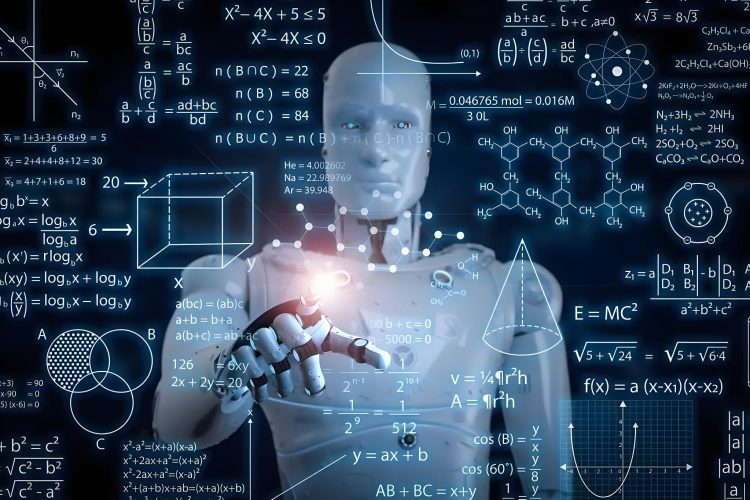In the vast expanse of technological advancement, machine learning (ML) stands as a beacon, illuminating the path towards a smarter, more interconnected world. From self-driving cars navigating complex roadways to AI-powered healthcare systems diagnosing illnesses with unprecedented accuracy, the impact of ML is ubiquitous and profound. As we stand at the cusp of a new era, the question arises: where does the journey of machine learning lead us next? This essay delves into the future trajectory of ML, exploring emerging trends, ethical considerations, and the transformative potential it holds for society.
The Dawn of Deep Learning and Beyond
The past decade has witnessed a revolution in machine learning, fueled primarily by the ascendancy of deep learning. Deep neural networks, with their ability to mimic the intricate patterns found in the human brain, have enabled machines to perform tasks that were once considered the exclusive domain of humans. From image recognition and natural language processing to complex game-playing strategies, deep learning has pushed the boundaries of what we thought was achievable.
However, the future of ML extends far beyond the current realm of deep learning. Researchers are exploring novel architectures and algorithms that promise even greater efficiency, interpretability, and robustness. For instance, the integration of reinforcement learning with deep learning has led to the development of agents capable of learning from their environment and optimizing their behavior over time. This fusion holds immense promise for applications ranging from robotics to financial trading.
Moreover, the trend towards specialized hardware designed specifically for ML tasks, such as GPUs and TPUs, is accelerating the pace of innovation. These advancements will enable the training of even larger and more complex models, unlocking new frontiers in AI research.
The Intersection of ML and Other Technologies
Machine learning is not an isolated field; rather, it intersects with numerous other technologies, creating a symbiotic relationship that propels progress across industries. One such intersection is with the Internet of Things (IoT). As billions of connected devices generate vast amounts of data, ML algorithms can analyze this information in real-time, enabling predictive maintenance, energy optimization, and personalized user experiences.
Another significant intersection is with quantum computing. While still in its infancy, quantum computing promises to revolutionize ML by enabling the processing of data at speeds and scales that are currently unimaginable. Quantum-enhanced ML algorithms could lead to breakthroughs in areas such as drug discovery, climate modeling, and financial forecasting.
Furthermore, the integration of ML with blockchain technology is opening up new avenues for secure and transparent data sharing. By leveraging the immutability and decentralization of blockchain, ML models can be trained on sensitive data without compromising privacy, fostering collaboration and innovation across industries.
Ethical and Societal Implications of ML
As ML continues to permeate every aspect of our lives, ethical considerations become increasingly paramount. Bias in ML algorithms, a result of the data they are trained on, can perpetuate and amplify societal inequalities. Addressing this issue requires a multi-faceted approach, including the development of fairer datasets, the implementation of bias-mitigation techniques, and increased transparency in the decision-making processes of ML systems.
Moreover, the increasing autonomy of ML-powered systems raises questions about accountability and liability. Who is responsible when an autonomous vehicle causes an accident? How do we ensure that AI-driven decisions align with human values and ethical principles? These questions underscore the need for a comprehensive regulatory framework that governs the development and deployment of ML technologies.
Additionally, the widespread adoption of ML has the potential to disrupt entire industries and displace workers. While this transformation presents opportunities for economic growth and societal progress, it also necessitates a proactive approach to reskilling and upskilling the workforce, ensuring that no one is left behind in the march towards automation.
Transforming Industries and Societies
The impact of ML extends far beyond the technical realm, transforming industries and societies in profound ways. In healthcare, ML is enabling personalized medicine, where treatments are tailored to individual patients based on their genetic profiles and medical histories. This precision medicine approach promises to improve outcomes, reduce costs, and enhance patient satisfaction.
In education, ML is revolutionizing the way we learn. Adaptive learning platforms use data on student performance to tailor instructional materials and pacing, ensuring that each student receives the support they need to succeed. This personalized approach to education has the potential to close achievement gaps and democratize access to high-quality education.
Furthermore, ML is transforming the way we interact with the world. From virtual assistants that anticipate our needs to smart homes that adjust to our preferences, ML-powered technologies are making our lives more convenient and comfortable. However, it is crucial to strike a balance between convenience and privacy, ensuring that these technologies respect our personal boundaries and do not infringe upon our rights.











































Discussion about this post